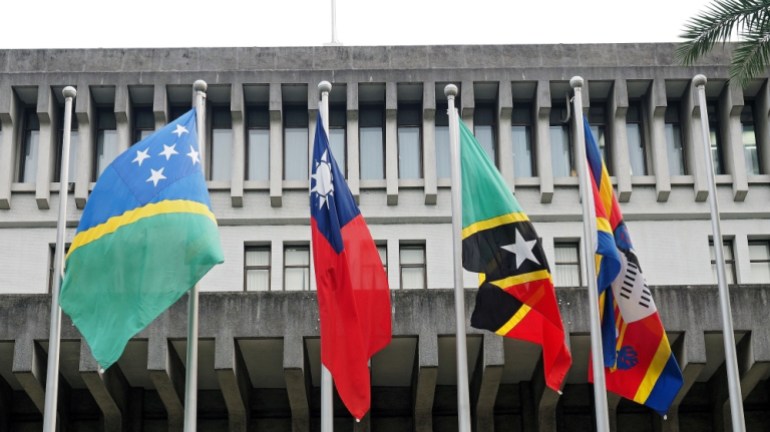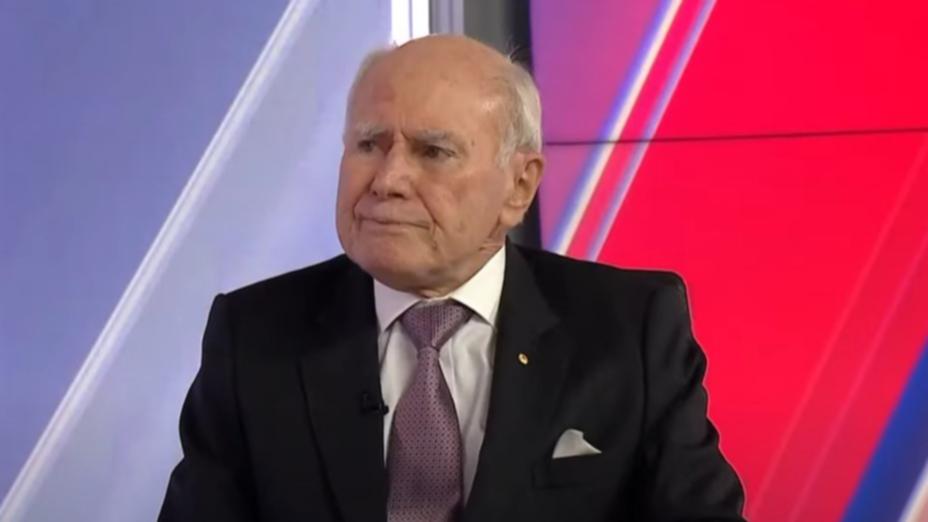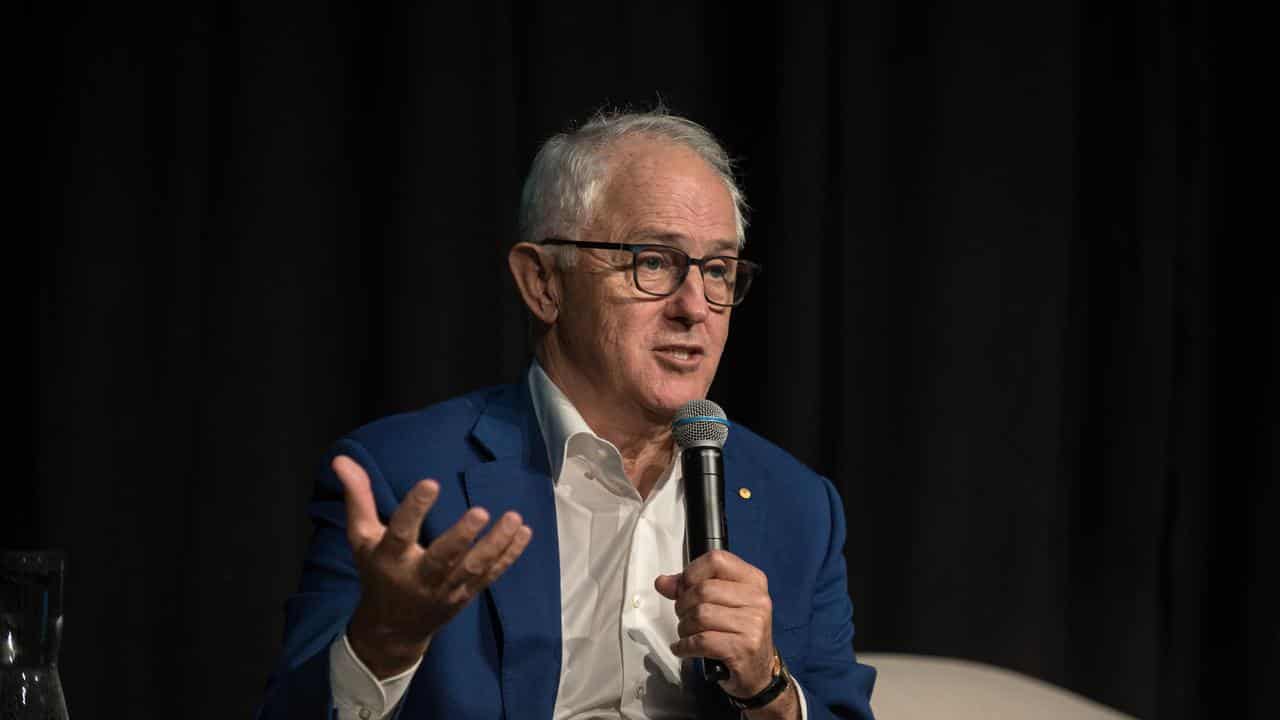
Daniel Suidani, the premier of Malaita – the Solomon Islands’ largest province – is in hospital in Taiwan receiving treatment for a suspected brain tumour. But the influential politician is also under fire from the Pacific nation’s government over a medical evacuation that has underlined the deep divisions over a 2019 decision to switch diplomatic recognition from Taipei to Beijing.
Suidani, who has emerged as one of the Solomon Islands’ most prominent China critics since the country ended its 36-year alliance with Taiwan, arrived in Taipei on May 26 in a trip the government has condemned as “unauthorised”.
That decision to shift diplomatic ties to China – known locally as “the switch” – remains unpopular and is mired in allegations that corrupt influence by Taiwan and China helped shape the decision.
Solomon Islanders who opposed the switch feared an economic relationship with China would be unmanageable.
Others expressed concern over Beijing’s treatment of religious minorities and its one-party system of government, which they said conflicted with the Solomon Islands’ democratic principles and widely-held Christian views.
Opposition was loudest in Malaita, where anti-China activism has taken hold in Auki, the provincial capital.
Suidani has since pledged to refuse any Chinese investment in his province, while fostering a close partnership with Taiwan bringing him into direct conflict with the Solomon Islands’ formal “One China” policy, and resulting in an increasingly acrimonious and public, spat between him and the Solomon Islands’ Prime Minister Manasseh Sogavare.
‘Shaking hands with China’
Premier Suidani’s health has been deteriorating since the start of the year.
After it was recommended that Suidani seek treatment abroad, his senior adviser, Celsus Talifilu, flew to Brisbane to arrange treatment in Australia, which was priced at $121,000 Australian dollars ($92,700).
The foreign ministers of China and Solomon Islands at a signing ceremony in Beijing in October 2019. The Pacific nation’s decision to switch diplomatic allegiance to China from Taiwan has not been universally welcomed [File: Thomas Peter/Reuters]Talifilu told Al Jazeera English that the Malaitan premier first approached the Sogavare Government for financial assistance, where it is alleged that support for Suidani would be conditional to a public handshake between Suidani and Sogavare.
The Malaitan leader refused to entertain the idea.
“It would be like shaking hands with China”, Talifilu said, referencing Sogavare’s close relationship with Beijing.
The Sogavare Government told local media that its offers of assistance were refused for political reasons.
“[Premier Suidani] can express his political views against the Government that paid his salaries, but his personal health should be his priority rather than snooping around to poor advice from his henchmen,” it said.
Talifilu, who worked personally with Taipei to arrange the premier’s treatment and is travelling with Suidani, says that his subsequent request for Taipei’s assistance had “strong support” from Taiwan’s President Tsai Ing-wen.
But Taipei has downplayed the claims.
“Premier Suidani took the initiative of approaching Taiwan in the hope of travelling to our country for medical treatment,” said Joanne Ou, a spokesperson for Taiwan’s Ministry of Foreign Affairs.
“Considering that Premier Suidani is a long-term friend and staunch supporter of Taiwan and that professional assessment has confirmed the need for urgent medical treatment, the government of Taiwan has agreed to Premier Suidani’s visit on the basis of humanitarian concern.”
China’s Honiara embassy says it has “raised concerns” with the Sogavare Government over Suidani’s Taiwan visit.
“China firmly opposes any official contacts in any form between Taiwan and any officials from countries having diplomatic relations with the People’s Republic of China” it said in a statement on May 30.
Shifting diplomatic tactics
Taipei’s assistance to Suidani, a leader of a rebel province with independence aspirations and one of Solomon Islands’ most prominent Beijing critics, is the latest example of the two parties’ extended public courtship.
Throughout the COVID-19 pandemic, Premier Suidani held numerous public events celebrating the arrival of Taiwanese aid consignments in Malaita – aid that was not approved by Honiara.
 Taiwan ended formal diplomatic ties with Taiwan in September 2019, and was followed only days later by Kiribati [File: David Chang]The consignments began flowing after a clandestine meeting between Talifilu and Taiwanese diplomats in Brisbane, Australia in March last year and have often been unveiled in ceremonies with prominent displays of the Taiwanese and Malaitan flags.
Taiwan ended formal diplomatic ties with Taiwan in September 2019, and was followed only days later by Kiribati [File: David Chang]The consignments began flowing after a clandestine meeting between Talifilu and Taiwanese diplomats in Brisbane, Australia in March last year and have often been unveiled in ceremonies with prominent displays of the Taiwanese and Malaitan flags.
The Pacific had long been a bastion of Taiwanese support but the recognition of Beijing by Solomon Islands and Kiribati in 2019 was a blow to Taipei’s regional influence.
Four Pacific Island nations, Palau, Marshall Islands, Nauru and Tuvalu – with a combined population of just 100,000 people – still extend full diplomatic recognition to Taipei. Taiwan is recognised by just 15 nations globally.
Malaita, a geographically substantive province in the Solomon Islands, has a population of almost 200,000 people.
As China poaches more of its allies, Taipei has engaged in unconventional diplomatic tactics, including forging ties with Somaliland, an unrecognised breakaway region of Somalia.
“China’s motive has been to shrink Taiwan’s international space”, said Sana Hashmi, a visiting fellow at the Taiwan-Asia Exchange Foundation.
“Amid China’s rising aggression, Taiwan could do with more friends and like-minded countries. [Its] continuous engagement with Malaita hints towards strengthening sub-national cooperation with countries with unofficial ties.”
Hashmi believes Taiwan’s assistance to Suidani is consistent with its “policy of giving no-strings-attached humanitarian assistance” and its deepening relationship with Malaita suggests President Tsai’s “willingness to engage friendly populations”.
Taiwan’s engagement with Malaita has coincided with the growth of Malaita’s separatist aspirations. In 2020, Premier Suidani announced that Malaita would conduct an independence vote, seeking to separate from Solomon Islands and citing his province’s opposition to Honiara’s China policy as justification.
Unity at risk
Meanwhile, China’s role in the Solomon Islands has continued to grow since “the switch”. It has provided significant COVID-19 assistance, including supplies of its Sinopharm vaccine.
China has courted significant media companies by giving them cars and computers, two local journalists familiar with Beijing’s media assistance told Al Jazeera.
But these efforts have been undermined by suspicions of China’s intentions in the country, exacerbated by the failed efforts of one Chinese business figure to lease a centrally located island near Honiara, and leaks showing Sogavare’s finance minister in negotiations with a mystery Chinese financier for a $100bn loan.
Despite the Honiara-Beijing relationship approaching its third year, opposition politicians believe the Solomon Islands’ recognition of China is not yet settled.
“If I were prime minister, I would go back to the people”, said Matthew Wale, the Solomon Islands’ opposition leader.
He said any future Wale Government would test the question of Honiara’s allegiance to China in a national referendum.
The office of Prime Minister Sogavare did not respond to Al Jazeera’s request for comment.
 Solomon Islands has suffered periods of political instability, sometimes requiring intervention by peacekeeping forces. Some fear the dispute over diplomatic ties could undermine peace [File: William West/AFPBetween 1998 and 2003, the Solomon Islands descended into civil conflict, with tensions between Malaitans and other ethnic groups leading to an estimated 200 deaths.
Solomon Islands has suffered periods of political instability, sometimes requiring intervention by peacekeeping forces. Some fear the dispute over diplomatic ties could undermine peace [File: William West/AFPBetween 1998 and 2003, the Solomon Islands descended into civil conflict, with tensions between Malaitans and other ethnic groups leading to an estimated 200 deaths.
The conflict was brought under control only after Australia and other countries in the region intervened. The peacekeeping operation, known as the Regional Assistance Mission to Solomon Islands (RAMSI), ran for 13 years, concluding in 2017 at a cost of more than $700m.
As tensions continue to escalate between Malaita and the National Government, some fear the post-RAMSI peace in the country is being undermined.
“I am extremely concerned about the unity of the country”, Wale said. “I am extremely concerned about this matter leading to civil strife”.




